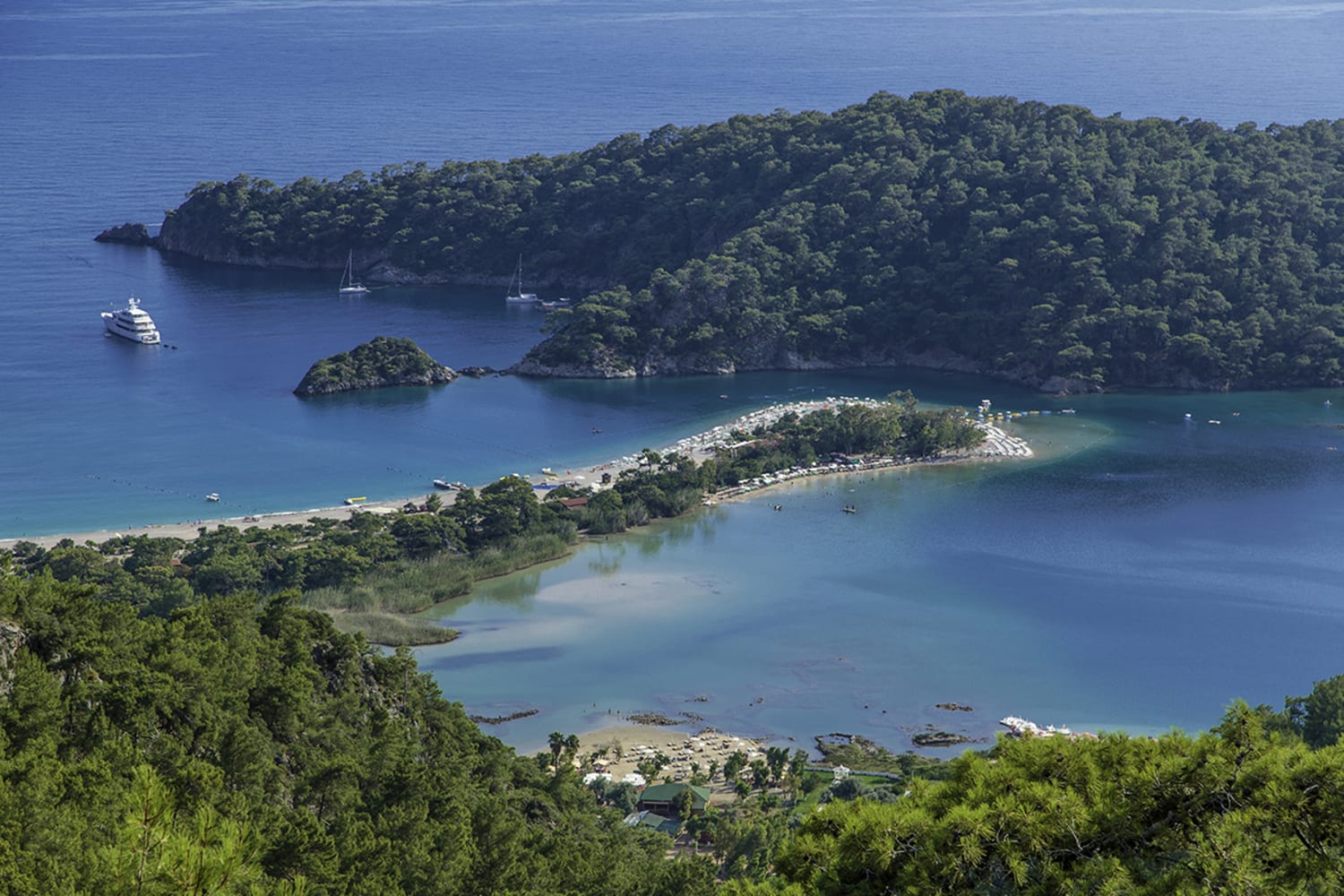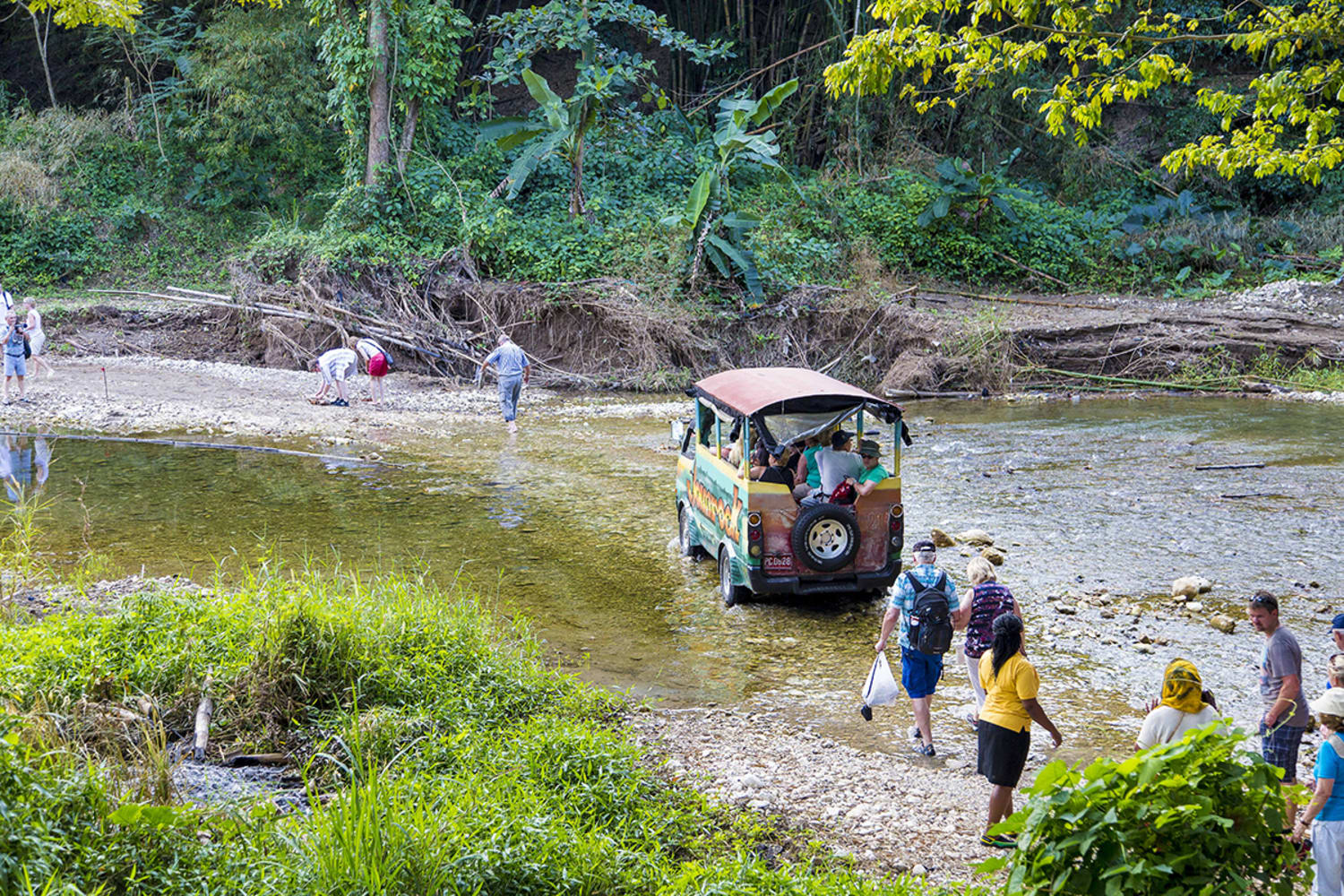From Greta Thunberg’s two-week, carbon-neutral boat journey across the Atlantic Ocean to attend a climate change conference this summer to Prince Harry launching sustainable travel initiative Travalyst, there’s a growing buzz among the industry—and consumers—about how to make travel more environmentally friendly. As a result, travel companies and NGOs are exploring myriad ways to mitigate tourism’s negative environmental impact.
Moving in the right direction, the travel industry takes action to curb its negative impact on the environment.

In some circles, flying is becoming taboo, as the flight-shame movement, which started in Sweden and is now growing across Europe, encourages people to eschew flying for less carbon-intensive train journeys. Proponents include Thunberg, singer Staffan Lindberg, and biathlete Björn Ferry. And when Prince Harry, the Duke of Sussex, and his family took flights on private jets over the summer—after championing environmental awareness—the media backlash was fierce. (The duke said at the Travalyst launch that he offsets the carbon emissions when he flies privately.)
The Travalyst initiative, a partnership spearheaded by the Duke of Sussex and cofounded by Booking.com, Ctrip, Skyscanner, TripAdvisor, and Visa, says its aim is to “change the impact of travel, for good.” Travalyst’s founders say it will work towards “improving conservation, environmental protection and expanding local community economic development by encouraging sustainable tourism practices across the travel industry.”
Underlining the travel industry’s rapid expansion in recent years, Travalyst cites World Tourism Organization (UNWTO) data showing that in 2018 the number of international trips taken globally reached 1.4 billion, two years faster than original projections. The UNWTO forecasts that this will rise to 1.8 billion trips by 2030.


The Travel Foundation is a UK charity that works in partnership with businesses and governments to help ensure tourism brings greater benefits for people and the environment. Ben Lynam, the organization’s head of communications, explains that businesses mobilizing to make travel more sustainable, reflecting Travalyst’s aim, is essential to effect change.
“We get asked all the time what customers should be doing to have a more responsible trip,” says Lynam. However, as he points out, “if you’re going to a place where there’s no water and there is poor sewage treatment, the environment is at risk, and it’s very hard for you to be responsible.” The Travel Foundation’s view, he says, is that the focus has to be on the industry itself. The charity thus encourages travel companies to “build their capacity to be more than just a marketing organization. They’ve got to have a lot more data at their fingertips in terms of how each new tourist is impacting on destinations and understanding what that means for infrastructure and for the maintenance of monuments and the environment.”

Indeed, as JWT Intelligence reported in our Guardrail Tourismstory earlier this year, heavily visited destinations, including Venice and Amsterdam, are taking steps to limit the number of tourists, to preserve such cities for the future—and enhance residents’ quality of life. Venice has begun to charge visitors to enter, while Amsterdam removed the “I, Amsterdam” letters formerly stationed in front of the Rijksmuseum, after the spot became overcrowded with people seeking Instagram shots.
Another tactic is focusing on luxury and wellness tourism, attracting fewer, but higher-spending tourists.
In August 2019, the Travel Market Report noted that ahead of the 2020 Olympics in Tokyo, Japan is set to divert tourists away from “the over-visited Kyoto-Osaka-Tokyo routes” by promoting less-known wellness destinations. These include Misugi, which boasts “natural assets like stargazing and forest bathing,” and Beppu on the southern island of Kyushu, known for its hot springs.
As a rising tourism hotspot, Slovenia’s aim is to “become a green boutique destination for five-star experiences,” according to Maja Pak, director of the country’s tourist board, speaking at the September 2019 Bled Strategic Forum. “We know that quality is more important than quantity,” said Pak of the country’s tourism strategy. “We all agree that Slovenia must become a place that enables a high quality of life for local residents and outstanding experiences for its visitors.”
Lynam believes that to build a sustainable tourism economy, destinations should seek to attract diverse groups of travelers, rather than solely luxury visitors. “If we look at the five-star hotel end of tourism, things like water use go sky-high per tourist. That might be a really bad idea if you’re in a water-scarce destination,” says Lynam. “It may be you need to be attracting a different type of tourist to extend your season longer.” A good mix of tourist types is probably what’s required, he concludes.
And data points to consumer approval of the travel industry driving change. Booking.com, part of the Travalyst partnership, has found that 71% of global travelers think that travel companies should offer more sustainable travel choices, and 68% said it was important the money they spent on travel went back into local communities. Skyscanner reported that in the past year, 10 million travelers using its service selected the lowest CO2 emission flight option.
It’s clear that consumers are increasingly keen to seek out more sustainable ways to travel—whatever the approach.
Please provide your contact information to continue.
Related Content

VML Prague and KitKat offers a digital break with its new "Phone Break" campaign

